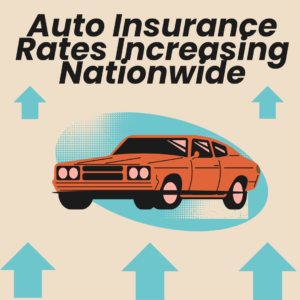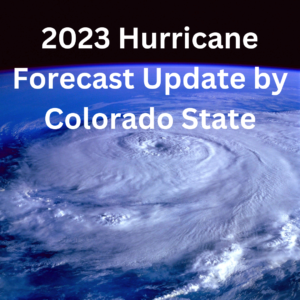At EnsureUp, we strive to keep our clients informed about the latest trends and developments in the insurance industry. Recently, a report highlighted by ABC News revealed that car insurance rates are projected to rise significantly in the coming years. In this blog article, we will delve into the key findings of the report, discuss the factors contributing to the rate increases, and offer insights into how you can navigate these changes effectively.
The ABC News Report: The article published by ABC News sheds light on the projected car insurance rate increases. It highlights the findings of a comprehensive study that predicts an 8.4% surge in car insurance rates by 2023. This forecast is based on several factors impacting the insurance landscape.
- Factors Driving Car Insurance Rate Increases:
A. Distracted Driving Epidemic: The rise of smartphones and other distractions has contributed to an alarming increase in accidents. This surge in distracted driving incidents has led to higher claim frequencies and subsequently impacted insurance rates. For example, “The National Highway Traffic Safety Administration (NHTSA) estimates that 9,560 people died in motor vehicle traffic crashes in the first quarter of 2022. This is an increase of about 7% as compared to the 8,935 fatalities projected for the same quarter in 2021. This would be the highest number of first-quarter fatalities since 2002. Estimates from the National Safety Council state that, “More than 46,000 people lost their lives in a preventable traffic crash. Estimates also reveal a staggering statistic: Compared to pre-pandemic 2019, the mileage death rate in 2022 increased nearly 22%, showing just how dangerous it is to use American roads.” The unfortunate loss of lives is forcing insurance companies to pay out more in claims, which force them to increase rates in order to stay in business.
B. Technological Advancements: While modern vehicles offer enhanced safety features, they also come with higher costs for repairs and replacements. Sophisticated technology increases repair expenses, which in turn affects insurance premiums.
C. Rising Medical Costs: The cost of medical care continues to escalate, which directly affects insurance companies’ claim settlements for bodily injury. As medical expenses soar, insurers must adjust rates to cover these costs. Medical costs for accidents that result in serious injuries can add up quick depending on the severity of the injury.
D. Severe Weather Events: Natural disasters, such as hurricanes, floods, and wildfires, have become more frequent and severe. These events lead to an increase in claims and place additional financial pressure on insurance companies, necessitating rate adjustments.
- Navigating the Changing Insurance Landscape: While insurance rate increases may seem daunting, there are steps you can take to mitigate the impact on your premiums:
A. Review Your Coverage: Periodically assess your insurance needs and discuss them with our experienced agents. Ensuring that you have the appropriate coverage tailored to your circumstances can help you optimize your insurance costs.
B. Explore Discounts: Insurance companies often provide various discounts that can help reduce your premiums. These may include safe driver discounts, bundled policies, good student discounts, or usage-based insurance programs. Our team can help you identify and maximize these potential savings.
C. Maintain a Clean Driving Record: Practicing safe driving habits, avoiding traffic violations, and attending defensive driving courses can help you maintain a clean driving record. This, in turn, may qualify you for lower insurance rates.
D. Consider Deductible Options: Assessing your comfort level with deductibles can help you select an amount that aligns with your financial capabilities. Choosing a higher deductible can lower your premium but requires careful consideration.
- The Value of an Independent Insurance Agency: As an independent insurance agency, we offer distinct advantages that can help you navigate the changing insurance landscape:
A. Access to Multiple Carriers: We have established relationships with a variety of reputable insurance companies, giving us the flexibility to compare coverage options and find the best fit for your needs and budget.
B. Personalized Service: Our dedicated team of insurance professionals is committed to understanding your unique circumstances. We provide personalized guidance, helping you make informed decisions and secure the right coverage at competitive rates.
C. Ongoing Support: We are here to assist you throughout your insurance journey, from policy selection to claims assistance. Our goal is to provide exceptional service and be a trusted resource for all your insurance needs.
The projected rise in car insurance rates demands attention and proactive measures. By understanding the factors driving these increases and leveraging the expertise of an independent insurance agency like EnsureUp, you can navigate the changing insurance landscape with confidence. Contact us today at (305) 452-0587 to explore your options, maximize savings, and secure the coverage you.
Works Sited:
https://www.nhtsa.gov/press-releases/early-estimates-first-quarter-2022
https://abcnews.go.com/Business/car-insurance-rates-rise-84-2023-report/story?id=96340980










